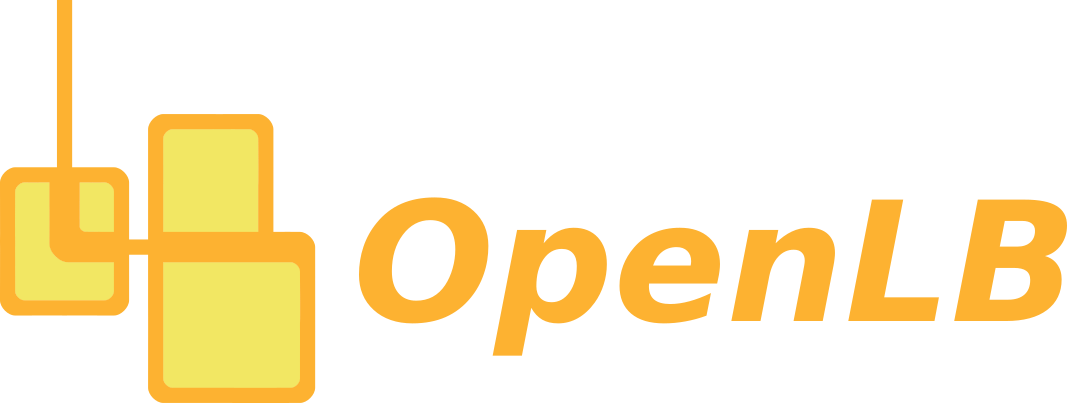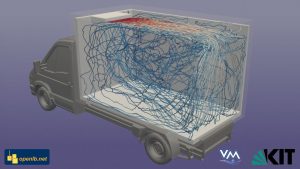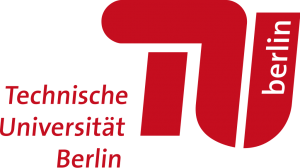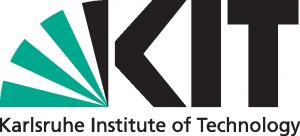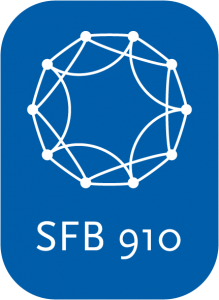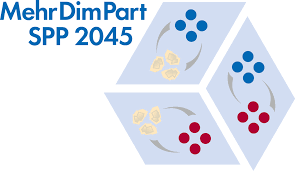4th Spring School
Lattice Boltzmann Methods
with OpenLB Software Lab
9.-13. March 2020
Berlin, Germany
Executive committee
- Nicolas Hafen, Karlsruhe Institute of Technology, Germany
- Mathias J. Krause, Karlsruhe Institute of Technology, Germany
- Harald Kruggel-Emden, Technische Universität Berlin, Germany
- Christopher McHardy, Technische Universität Berlin, Germany
- Cornelia Rauh, Technische Universität Berlin, Germany
- Holger Stark, Technische Universität Berlin, Germany
- Robin Trunk, Karlsruhe Institute of Technology, Germany
The field of Lattice Boltzmann Method
In recent years, Lattice Boltzmann Methods (LBM) turned into an established numerical tool for computational fluid dynamic (CFD) problems and beyond. The simulation of complex multi-physical problems benefits strongly from the comprehensive mesoscopic modelling underlying LBM and establishes LBM besides traditional numerical methods.
Target audience
The expected attendees are developers and researchers, from industry and academia interested to learn theoretical and practical aspects of LBM. The spring school addresses e.g. engineers, computer scientists, mathematicians and physicists as well as Master and PhD students. The course level is beginners in LBM. Based on their interest in CFD, this course provides a collaborative platform for LBM, both for developers and researchers.
Objective of the spring school
The spring school introduces scientists and applicants from industry to the theory of LBM and trains them on practical problems. The first half of the week is dedicated to the theoretical fundamentals of LBM up to ongoing research on selected topics. Followed by mentored training on case studies using OpenLB in the second half of the week, the participants gain deep insights into LBM and its applications. Emphasis is placed on the modelling and simulation of particulate fluid flows.
This educational concept is probably unique in the LBM community and offers a comprehensive and personal guided approach to LBM. Participants also benefit from the knowledge exchange during poster session, coffee breaks and an excursion.
Lab room and requirements
In the computing lab sessions on Thursday and Friday, the participants are trained on practical applications, deploying the open source software OpenLB. Particular focus is placed on case studies, which are important to understand and verify the theory presented in the lectures, earlier in the spring school. By the help of experienced tutors, the computing lab sessions also enable to set up OpenLB simulations for relevant problems. To guaranty personal tutoring and intensive exchange between experienced mentors and novices, the lab is limited to 50 participants.
The attendees are responsible to bring their own laptop equipped with the software
- GNU c++ compiler 5.0, clang compiler 3.4, icc compiler 17.0 or higher
- OpenMPI 1.6 and higher
- Paraview
Windows users prepare their laptop in advance following the Technical Report 4 or 5 (www.openlb.net/tech-reports).
Speakers
- Timm Krüger, The University of Edinburgh, United Kingdom
- Sam Avis, Halim Kusumaatmaja, Durham University, United Kingdom
- Timothy Reis, University of Greenwich, United Kingdom
- Max Gaedtke, Nicolas Hafen, Marc Haussmann, Fabian Klemens, Mathias J. Krause, Albert Mink, Stephan Simonis, Robin Trunk, Karlsruhe Institute of Technology, Germany
- Christopher McHardy, Simon Reinecke, Tony Rosemann, Technische Universität Berlin, Germany
- Christoph Rettinger, Friedrich-Alexander-Universität Erlangen-Nürnberg, Germany
Course delivery
Printed lecture notes, lectures by invited speakers, software lab mentored by OpenLB developers, 5x lunch, 2x dinner (including Spring School dinner), social excursion, all coffee breaks, certificate of participation
Open workshop of DFG SFB 910 and SPP 2045
The spring school is organized as open workshop being included in the DFG programs SFB 910 as well as SPP 2045. It promotes the participants of the programs in the first place, but is open for the interested general public. The spring school is organized as a non-profit event.
Pricing
| Early registration (by 10. February 2020) | Regular registration | |
| Academia | € 350 | € 500 |
| Industry | € 1.700 | € 1.850 |
Poster session award
The award is aiming at supporting excellent students working in the field of LBM.
Program — LBM Theory
| Time | Monday | Tuesday |
| 09:00 | Opening, LBM for application Mathias J. Krause, Christopher McHardy | Turbulence models Marc Haußmann |
| 10:00 | Coffee break | Coffee break |
| 10:30 | Short introduction by participants all participants | Thermal flows Max Gaedtke, Tony Rosemann |
| 11:30 | Introduction to LBM Timothy Reis | Multi-phase and multi-component flows Halim Kusamaatmaja |
| 12:30 | Lunch break | Lunch break |
| 14:00 | Boundary conditions Timothy Reis | Particulate flows Jan Marquardt, Simon Reinecke, Robin Trunk |
| 15:00 | Dimensionalisation Timm Krüger | Application of particulate flows Timm Krüger |
| 16:00 | Coffee break | Coffee break |
| 16:30 | Analysis of LBM Stephan Simonis Radiative transport Christopher McHardy | Efficient parallel implementation Adrian Kummerländer Grid refinement for LBM Christoph Rettinger |
| 17:30 | Poster session and dinner | Free, optional: Introduction to linux terminal (15 min), help desk in order to get OpenLB running on your laptop |
Program — OpenLB Software Tutorial
| Time | Wednesday | Thursday | Friday |
| 09:00 | 1 Introduction Basic concepts, Functors, performance, validation | 3.2 Prepare geometry Functors, meshing, material numbers Exercise 2: Prepare geometry | Advanced models I Online documentation, Doxygen |
| 10:00 | Coffee break | Coffee break | Coffee break |
| 10:30 | 2 Preliminaries OpenLB setup, VTK output, Paraview, documentation | 3.3 Prepare lattice Descriptor and Dynamics, external fields | Advanced models II Exercises 5: Particle laden flows I Exercises 6: Particle laden flows II Exercises 7: Free energy model |
| 11:30 | 3.1 Initialisation XML interface, unit conversion, Exercise 1: Initialisation | 3.4 Main loop with timer Time measurement, convergence check | Closing (12:00) |
| 12:30 | Lunch break | Lunch break | Lunch break |
| 14:00 | Social event / excursion | 3.5 Initial and boundary conditions Boundary objects, dynamics, types Exercise 3: Boundary conditions | Tutorial: Applying and developing OpenLB |
| 15:00 | Social event / excursion | 3.6 Collide & Stream LBM Algorithms, Execution coupling, Collision, Streaming | Option 1: OpenLB for applicants: work on your own application |
| 16:00 | Social event / excursion | Coffee break | Option 2: OpenLB for developers: implement your own LB model |
| 16:30 | Social event / excursion | 3.7 Computation & Results console output, Functor application Exercise 4: Get results | |
| 17:30 | Social event / excursion | ||
| 19:00 | Spring school dinner |
